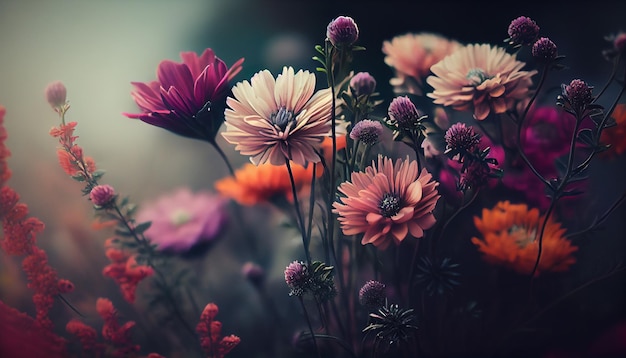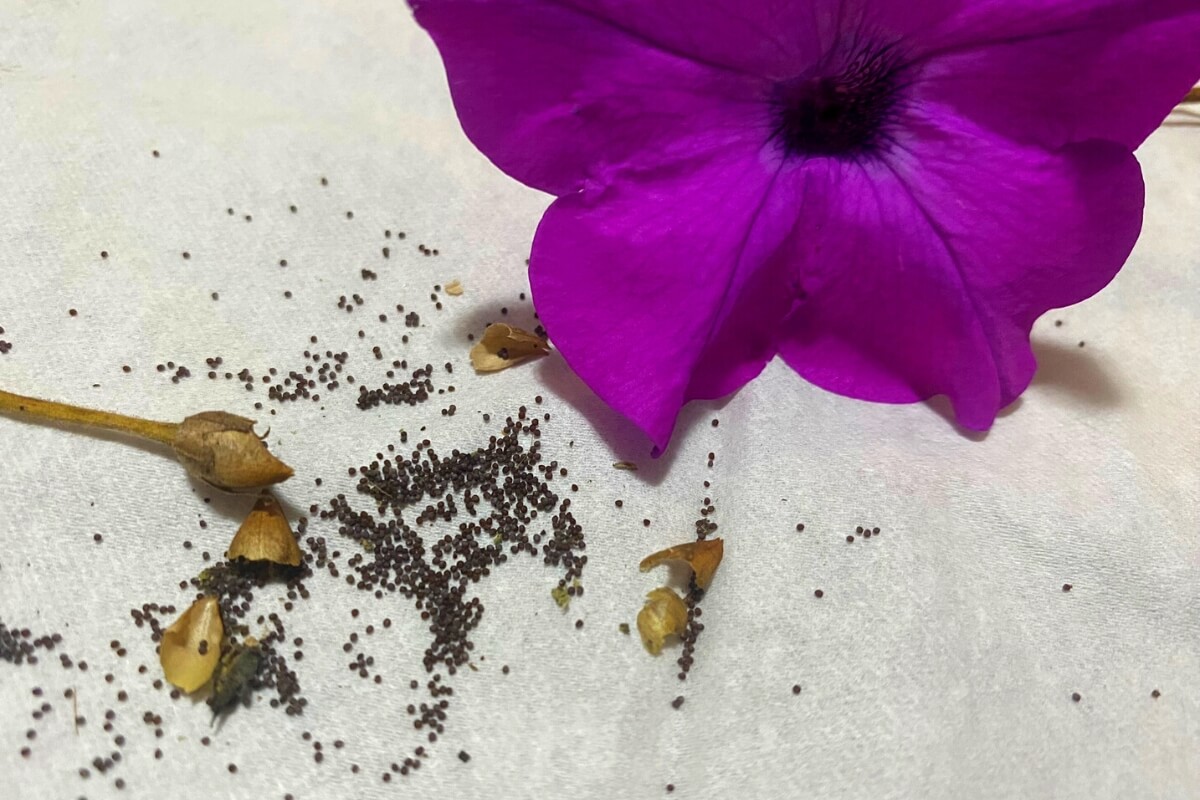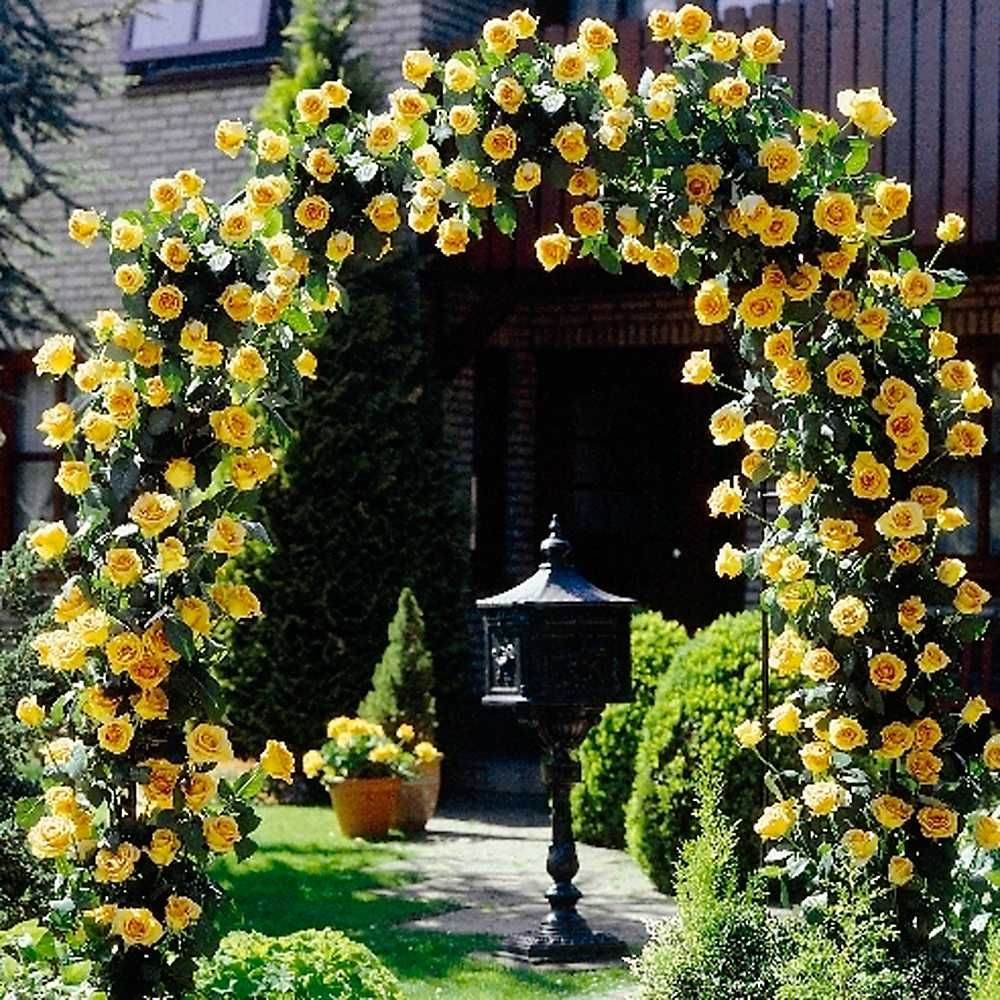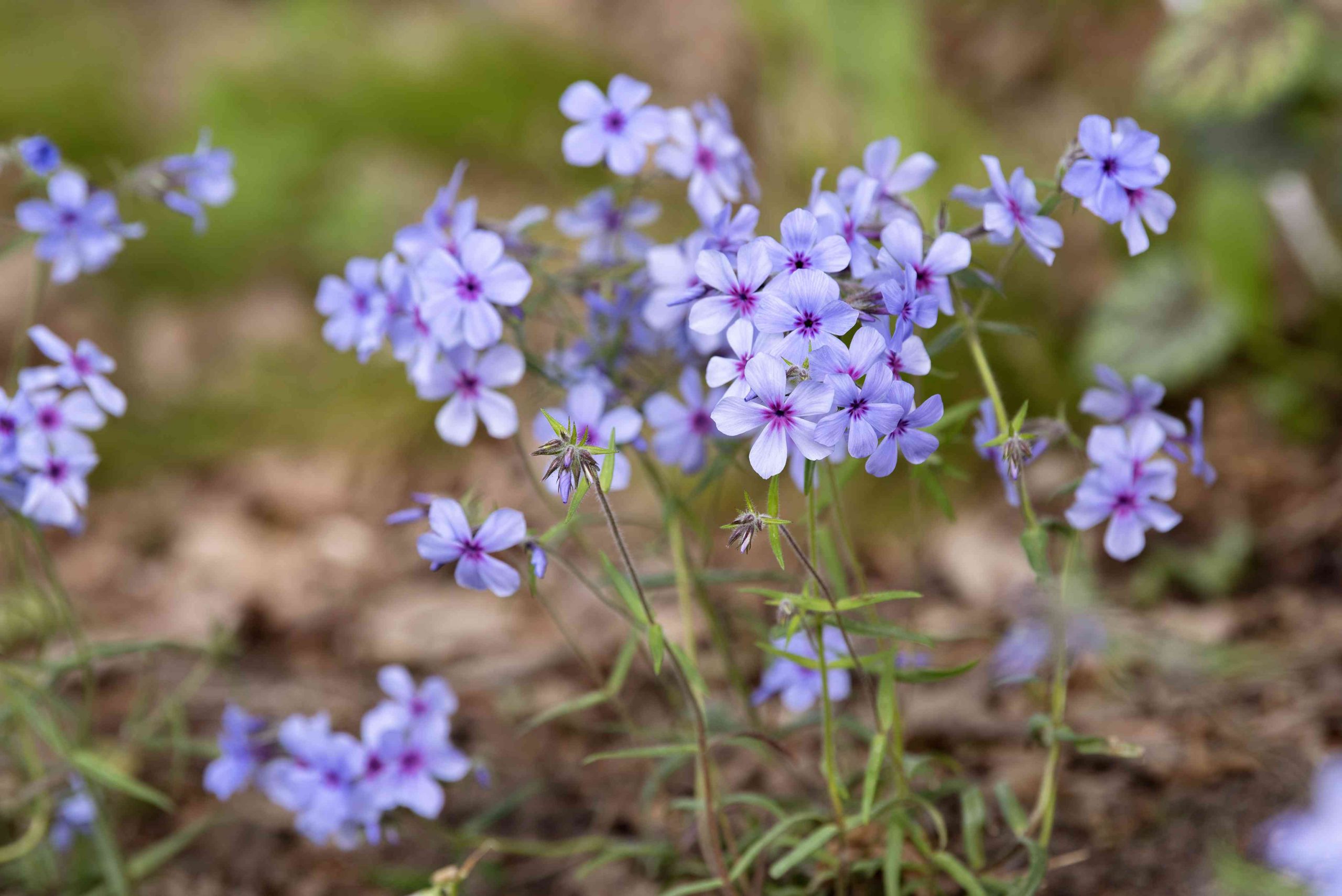The Complete Guide To Growing Petunia Seeds: Tips, Tricks, & Expert Advice is a comprehensive resource for anyone looking To grow petunia seeds successfully. This guide covers all aspects of seed selection, planting, & care, providing valuable tips & tricks along The way. With expert advice & step-by-step instructions, this guide ensures that even beginners can achieve beautiful & thriving petunia plants. Whether you are looking To brighten up your garden or add color To containers, this guide has everything you need To know To successfully grow petunias from seeds.
The Complete Guide to Growing Petunia Seeds: Tips, Tricks, and Expert Advice. Learn how To grow petunia seeds with our comprehensive guide. Get expert tips, tricks, & advice To successfully cultivate beautiful petunias in your garden. Start your journey today!
Growing Petunia Seeds: Tips, Tricks, & Expert Advice
Petunias are popular annual flowers that add vibrant colors To any garden or landscape. Growing petunias from seeds allows you To have a wider variety of options compared To buying established plants. If you’re a gardening enthusiast looking To grow petunia seeds successfully, this complete guide will provide you with valuable tips, tricks, & expert advice.

The Benefits of Growing Petunias from Seeds
There are several advantages To starting petunias from seeds. Firstly, you have a wider selection of seed varieties To choose from, including unique colors & patterns. Additionally, growing from seeds is more cost-effective than purchasing mature plants. It’s also a fulfilling experience To witness The entire growth process, from seed To blooming flower.
Choosing The Right Petunia Seed Varieties
When selecting petunia seed varieties, consider factors such as growth habit, color preferences, & environmental conditions. Some popular petunia varieties include grandiflora, multiflora, & wave petunias. Research different varieties & choose those that suit your garden’s conditions & your personal preferences.
Purchasing High-Quality Petunia Seeds
To ensure successful germination & growth, it’s essential To purchase high-quality petunia seeds. Look for reputable seed suppliers that offer a wide selection of petunia varieties. One such supplier is Park Seed (link: https://parkseed.com/petunia/c/petunia/). They provide a comprehensive collection of petunia seeds, ensuring you find The perfect varieties for your garden.
Preparing The Soil for Petunia Seeds
Petunias prefer well-draining soil with a slightly acidic To neutral pH level. Prepare The soil by removing any weeds or debris & loosening it with a garden fork or tiller. Incorporate organic matter, such as compost or aged manure, To improve soil fertility & moisture retention. Ensure The soil is well-drained To prevent waterlogged conditions, which can lead To root rot.
Sowing Petunia Seeds
Start sowing petunia seeds indoors, about 8-10 weeks before The last frost date in your area. Fill seed trays or pots with a seed starting mix & lightly press The seeds onto The surface of The soil. Cover The seeds with a thin layer of vermiculite or a fine layer of seed starting mix. Keep The soil moist but not waterlogged, & place The trays in a warm location with indirect sunlight.
Providing Optimal Growing Conditions
Once The seedlings emerge, move them To a bright location where they receive at least 6-8 hours of sunlight per day. Maintain a consistent temperature of around 70-75°F (21-24°C) To promote healthy growth. Water The seedlings regularly, ensuring The soil remains evenly moist. Avoid overwatering, as this can lead To fungal diseases.
Transplanting Petunia Seedlings
When The seedlings have developed their first set of true leaves & The risk of frost has passed, it’s time To transplant them into larger containers or directly into The garden. Choose a sunny location with well-drained soil for transplanting. Space The seedlings according To The specific variety’s recommended spacing.
Caring for Petunia Plants
To ensure your petunia plants thrive, there are a few care tips To keep in mind. Regularly deadhead faded flowers To promote continuous blooming. Water The plants at The base To avoid wetting The foliage, as this can lead To fungal diseases. Fertilize The plants every 2-3 weeks with a balanced water-soluble fertilizer. Monitor for pests & diseases & take appropriate measures To control them.
Harvesting Petunia Seeds
If you want To save petunia seeds for future planting, allow some flowers To fully mature on The plant. The petals will fall off, revealing seed pods. Harvest The pods when they turn brown & feel dry. Remove The seeds from The pods & store them in a cool, dry place in labeled envelopes.
Taking Your Petunia Growing Skills To The Next Level
If you’re eager To expand your skills & knowledge in growing petunia seeds, consider exploring additional resources. Harris Seeds (link: https://www.harrisseeds.com/collections/petunia) is another reliable supplier that offers a wide selection of petunia seeds. They have a wealth of information on their website To help you enhance your petunia growing expertise.
Experience with Growing Petunia Seeds
Throughout my gardening journey, growing petunia seeds has been a rewarding & exciting experience. Witnessing The tiny seeds transform into vibrant, blooming flowers brings a sense of fulfillment & awe. The tips & advice provided in this guide have helped me successfully grow petunias from seeds, & I hope they will do The same for you.
Key Features of “The Complete Guide To Growing Petunia Seeds”
– Detailed step-by-step instructions on sowing petunia seeds indoors
– Tips on selecting The right petunia seed varieties for your garden
– Advice on preparing The soil & creating optimal growing conditions
– Guidelines for transplanting petunia seedlings outdoors
– Insights on how To care for petunia plants To promote continuous blooming
Tips for Growing Petunia Seeds
In this comprehensive guide, we will explore The best tips, tricks, & expert advice for growing petunia seeds. Petunias are beautiful annual flowers that come in a variety of colors & patterns. They are relatively easy To grow from seeds & can add a vibrant touch To any garden or landscape.
Choosing The Right Petunia Seeds
When selecting petunia seeds, it’s important To consider The specific variety you want To grow. There are many different types of petunias, including grandiflora, multiflora, & milliflora. Each variety has its own unique characteristics & growth habits. Additionally, you can choose between single flowers or double flowers, depending on your preference.
One popular option is The Petunia Grandiflora, which produces large, showy flowers. Another option is The Petunia Multiflora, which is known for its profuse blooming & compact growth habit. Finally, The Petunia Milliflora produces numerous small flowers & is perfect for hanging baskets or containers.
Preparing The Soil
Petunias thrive in well-drained soil with a pH level between 6 & 7. Before planting your seeds, it’s important To prepare The soil properly. Start by removing any weeds or debris from The planting area. Then, loosen The soil using a garden fork or tiller To ensure good root development.
You can also add organic matter, such as compost or aged manure, To improve The soil’s fertility & moisture retention. This will provide a nutrient-rich environment for your petunias To grow & flourish.
Sowing Petunia Seeds
Once your soil is prepared, it’s time To sow your petunia seeds. Fill a seed tray or small pots with a well-draining seed starting mix. Moisten The mix before planting The seeds To ensure good contact & germination.
Place The seeds on top of The mix, spacing them about an inch apart. Lightly press The seeds into The soil, but do not cover them completely. Petunia seeds need light To germinate, so covering them too deeply can hinder their growth.
After planting, mist The seeds with water To keep The soil consistently moist. You can cover The tray or pots with a clear plastic dome To create a greenhouse-like environment. Place The tray or pots in a warm location, such as near a sunny window or using a seedling heat mat.
Caring for Petunia Seedlings
Once The seeds have germinated, remove The plastic dome (if used) & allow The seedlings To receive adequate airflow. This will help prevent dampness & fungal diseases. Water The seedlings regularly, keeping The soil moist but not waterlogged.
When The seedlings have developed their first set of true leaves, you can transplant them into larger containers or The garden. Be sure To harden off The seedlings first by gradually exposing them To outdoor conditions. This will help them acclimate & prevent transplant shock.
When transplanting, space The seedlings according To The specific variety’s recommended spacing. This will ensure that each plant has enough room To grow & receive adequate sunlight & nutrients.
Providing The Right Care
Once your petunias are established, it’s important To provide them with The right care To ensure healthy growth & abundant blooming. Here are some tips:
Sunlight:
Petunias thrive in full sun, so be sure To plant them in a location that receives at least six hours of direct sunlight per day.
Watering:
Water your petunias regularly, especially during hot & dry periods. The soil should be evenly moist, but not waterlogged. Avoid overhead watering, as this can lead To fungal diseases.
Fertilizing:
Feed your petunias with a balanced fertilizer every two To four weeks. This will provide them with The nutrients they need To bloom continuously. Follow The instructions on The fertilizer packaging for application rates.
Deadheading:
Remove faded flowers regularly To encourage continuous blooming. This will also prevent The plant from using energy To produce seeds.
Pest & Disease Control:
Monitor your petunias for any signs of pests or diseases, such as aphids, spider mites, or powdery mildew. If you notice any issues, take appropriate action, such as using insecticidal soap or organic fungicides.
Growing Petunia Seeds: Common Challenges
Growing petunia seeds can come with a few challenges. Here are some common issues & how To address them:
Poor Germination:
If your petunia seeds are not germinating well, it may be due To improper planting depth or temperature. Ensure that The seeds are sown shallowly & kept in a warm environment for optimal germination.
Damping Off:
Damping off is a fungal disease that affects young seedlings. To prevent damping off, use sterile soil & avoid overwatering. Provide good air circulation & keep The seedlings in a well-ventilated area.
Leggy Seedlings:
If your petunia seedlings are growing tall & spindly, it may be due To insufficient light. Move them To a location with more sunlight or provide artificial lighting To promote compact & sturdy growth.
Growing Petunia Seeds vs. Buying Seedlings
If you’re considering growing petunias, you may be wondering whether To start from seeds or purchase seedlings. Here is a comparison between The two options:
| Aspect | Growing Petunia Seeds | Buying Seedlings |
|---|---|---|
| Cost | Less expensive, as seeds are cheaper | More expensive, as seedlings are pre-grown |
| Selection | Wide variety of seeds available | Limited To The available seedling options |
| Control | You have control over The growth process | Limited control over The plant’s development |
| Time | Longer process, as you need To wait for germination & growth | Immediate results, as seedlings are already established |
| Experience | A great learning opportunity for gardening enthusiasts | Convenient for beginners or those with limited time |
Ultimately, The decision between growing petunia seeds or buying seedlings depends on your preferences, budget, & gardening experience.
The Joy of Growing Petunia Seeds
As a gardener, growing petunia seeds can be a rewarding experience. From The moment you sow The seeds To The time they start blooming, you’ll witness The miracle of life & nature. The vibrant colors & delicate blooms will bring joy & beauty To your garden.
By following The tips, tricks, & expert advice shared in this guide, you’ll be able To grow petunia seeds successfully. Remember To choose The right seeds, prepare The soil properly, & provide The necessary care To ensure healthy growth.
So go ahead, embark on your petunia growing journey, & create a stunning display of these beautiful flowers in your garden!
Experience of Self: Growing petunia seeds has been a fulfilling & enjoyable experience for me. The process of starting from tiny seeds & watching them transform into beautiful blooming plants is truly remarkable. It requires patience, attention To detail, & a little bit of nurturing, but The end result is definitely worth it. Seeing The vibrant colors & The delicate petals brings a sense of accomplishment & adds a touch of beauty To my garden.
Note: This article is not affiliated with or endorsed by any external websites mentioned.

How can I successfully grow petunia seeds?
To successfully grow petunia seeds, you should start by selecting a high-quality seed variety. Prepare a well-draining soil mix & sow The seeds thinly on The surface. Lightly cover The seeds with a thin layer of soil & water gently. Place The container in a warm & bright location, ensuring it receives at least 6 hours of direct sunlight. Keep The soil evenly moist & transplant The seedlings into individual pots once they have grown their first true leaves.
When is The best time To sow petunia seeds?
The best time To sow petunia seeds is typically in early spring, after The danger of frost has passed. This allows The seeds To germinate & establish before The warmer summer temperatures arrive. If you live in a colder climate, you can start The seeds indoors 6-8 weeks before The last frost date & then transplant The seedlings outdoors once The weather warms up.
How long does it take for petunia seeds To germinate?
Petunia seeds usually take around 7 To 10 days To germinate, but this can vary depending on The variety & environmental conditions. Providing The seeds with a warm & consistently moist environment can help speed up germination.
What are some tips for caring for petunia seedlings?
When caring for petunia seedlings, it’s important To provide them with adequate light, water, & proper ventilation. Place them in a sunny location where they receive at least 6 hours of direct sunlight every day. Be careful not To overwater The seedlings as this can lead To root rot. It’s also a good idea To gently brush or fan The seedlings daily To encourage strong stems & prevent damping-off disease.
Can I directly sow petunia seeds in my garden?
Yes, you can directly sow petunia seeds in your garden if The soil temperature is consistently above 70°F (21°C). Prepare The soil by removing any weeds & incorporating organic matter. Sow The seeds thinly on The surface & barely cover them with a thin layer of soil. Keep The soil moist until The seeds germinate & thin out The seedlings once they are large enough To handle.
How often should I fertilize my petunias?
It is recommended To fertilize petunias every 2-3 weeks during The growing season. Choose a balanced fertilizer with equal amounts of nitrogen, phosphorus, & potassium (N-P-K). Dilute The fertilizer according To The package instructions & apply it To The soil around The base of The plants. Avoid over-fertilization, as it can lead To excessive foliage growth with fewer flowers.
Conclusion
In conclusion, growing petunia seeds can be a rewarding & enjoyable experience. With The right tips, tricks, & expert advice, you can successfully cultivate beautiful petunias in your garden or even in pots & containers.
Remember To choose The right variety of petunia seeds based on your preferences & The conditions in your garden. Whether you opt for trailing, mounding, or grandiflora petunias, each type offers its own unique beauty.
To ensure successful germination, provide your petunia seeds with a warm & moist environment. Start them indoors & transfer them outside once The weather allows. Proper watering & fertilization are essential for healthy growth & vibrant blooms.
Pests & diseases can pose a threat To your petunias, so it’s important To identify & address any issues promptly. Regularly inspect your plants & take immediate action To prevent any damage.

By following these guidelines & maintaining a dedicated approach, you can have a flourishing petunia garden that will charm you & your guests throughout The growing season.
Remember, don’t be afraid To experiment & learn from your experiences. Gardening is a journey, & by growing petunias from seeds, you have The opportunity To witness The entire life cycle of these beautiful flowers.
So, grab your packet of petunia seeds, roll up your sleeves, & get ready To embark on a joyous gardening adventure. With patience, dedication, & The helpful tips in this guide, you’ll soon be surrounded by a sea of stunning petunias, bringing color & life To your outdoor space.

